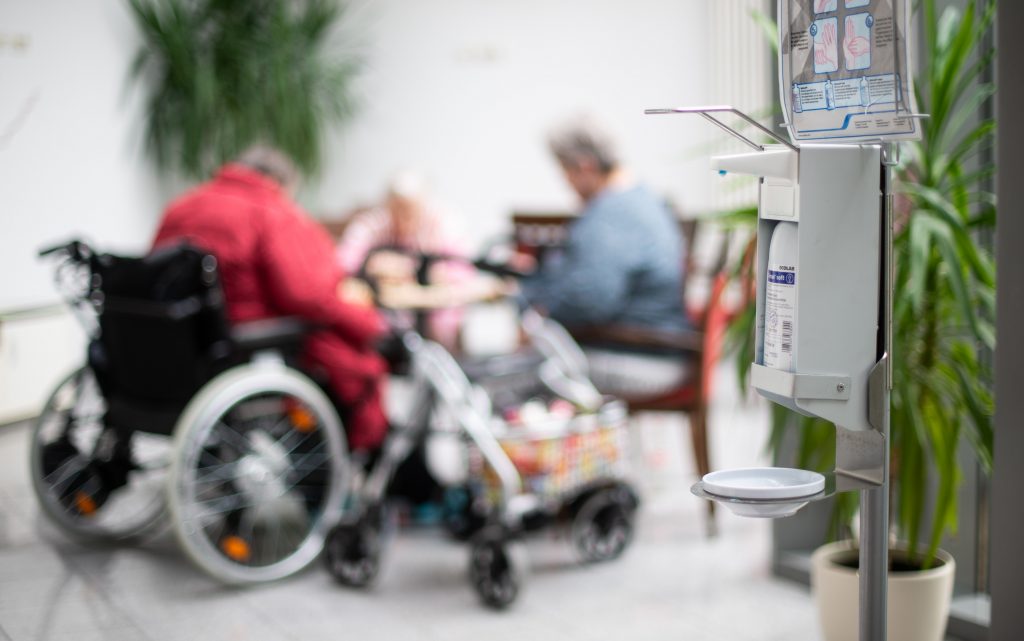Though more than 90 per cent of Ontario long-term care residents have been vaccinated and cases inside homes have dropped to near-zero, most living in care are still being forced to stay inside – and they are demanding to be let out.
WATCH: https://toronto.citynews.ca/2021/03/30/ontario-seniors-stuck-inside-long-term-care-want-to-be-let-out/
Advocates and residents say the continued restrictions amount to elder abuse and a violation of their human rights.
“No one has COVID-19 in this building, and yet we cannot leave our room. So, what does it take?” said Chuck, a resident at Southlake Long-term Care Village in Newmarket.
Many Ontario long-term care residents have been stuck inside since the pandemic began, more than a year ago. They say the restrictions no longer make sense.
“It is not enough just being alive. We need better quality of life,” said Alfred Borg, a long-term care resident in Newmarket.
Michelle Morriseau’s mother is in a long-term care facility in Thunder Bay. She says her mother is more alert when she’s outdoors.
“Why can’t I take my mom for a half an hour walk? Just to get her outside? Where’s her quality of life?” she asks. “How can you take that away from an elder – someone who has lived their life, they’ve contributed, and this is what they get?
At a press conference today, advocates from Voices of Long-Term Care and the Ontario Health Coalition joined doctors and residents to call on the Ford government to require long-term care homes to allow residents outside, and to forbid them from blocking their mobility rights.
“They’re not asking to go to malls and restaurants like all the rest of us are allowed to do now,” says Sandra Caleta, spokesperson for Voices of Long-term Care. “They simply want to go outside, get fresh air, feel the sunshine on their faces.”
The groups have been asking the Ontario government to direct long-term care homes to lift restrictive policies since the beginning of March, when both case numbers and deaths dropped dramatically in the homes thanks to vaccines.
There have been zero resident deaths due to COVID-19 since March 18, and there are currently only nine active resident cases, Ontario government figures show.
“People have been vaccinated,” says Dr. Amit Arya, a palliative care physician and board member of the Ontario Health Coalition. “What was the point if they couldn’t start to enjoy life again?”
While inside the homes, a new report from the Canadian Institute for Health Information found residents received less medical care during the first wave of the pandemic when compared to the previous year. The number of residents who received a visit from a physician was down 16 per cent, while there was also a slight increase in the prescription of anti-psychotic drugs to residents.
The study also found residents who had no contact with friends or family were 36 per cent more likely to be assessed with depression.
Long-term care resident Chuck says government officials don’t understand the conditions they are confining seniors to.
“I have challenged someone from the Ministry of Health to live in one of our rooms for a week,” he says, “to subject themselves to their rules – and then see what they would say.”
When CityNews asked the Ministry of Long-term Care about the issue, a spokesperson for Minister Merrilee Fullerton emailed the same statement the office sent us nine days ago, when we asked for an update on the rules.
After initially sending CityNews the same statement as nine days ago, the Ministry of Long-term Care eventually said the Minister has engaged with public health officials to “discuss the best path forward for residents while balancing their needs and safety.
A spokesperson for the Minister of Long-term Care said they are looking at options and will have more to say in the coming days.
“We have seen incidents in jurisdictions were residents who have been vaccinated contract COVID-19. Variants of concern poses a real threat to long-term care despite nearly every resident being fully immunized,” read the statement. “We continue to vaccinate staff, essential care givers, and other vulnerable groups and are seeing the positive effects.”
When asked today why the rules surrounding long-term care homes have not been relaxed, Premier Doug Ford said, “We have to be super cautious.”
The Ontario New Democrats’ critic for community and social services says the government’s response to seniors’ pleas has been “shameful and dismissive.”
“This government chooses to come forward with excuses,” says MPP Lisa Gretzky.
Dr. Arya says the lack of action illustrates the power imbalance between the government and care home operators, and the residents who live under their roofs.
“The operators and governments make decisions that are contrary to the evidence, contrary to logic, and contrary to scientific expertise as well,” he says.
With files from The Canadian Press
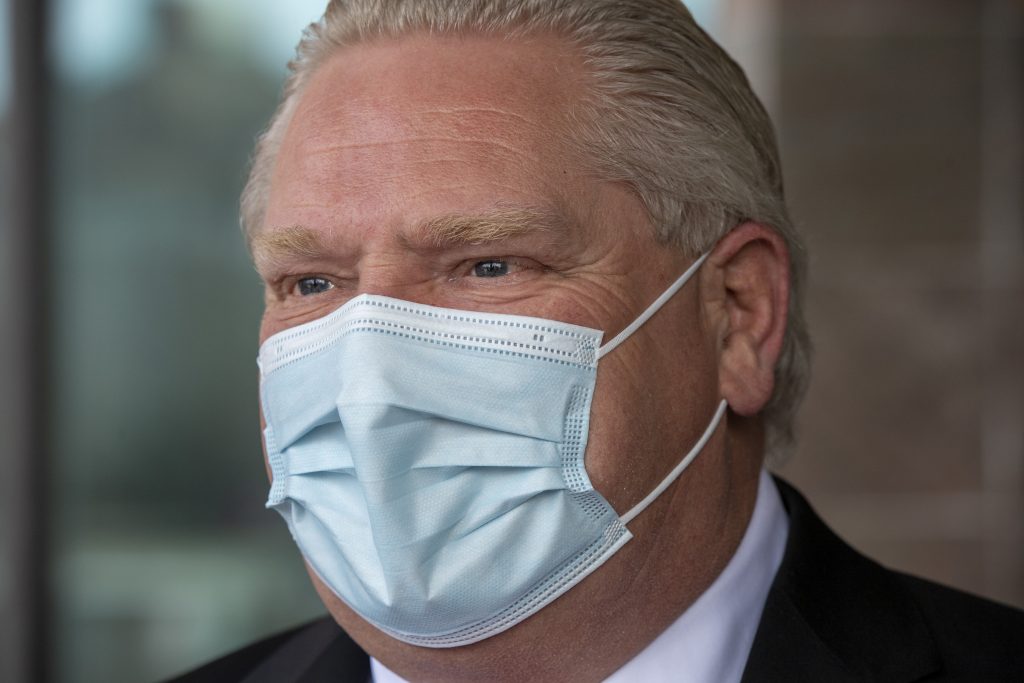
Ontario Premier Doug Ford is warning Ontarians not to make plans for Easter, saying he is “extremely concerned” about rising COVID-19 numbers.
WATCH: https://toronto.citynews.ca/2021/03/30/ford-ontario-easter-covid-19/
“Everything is on the table right now, so folks, be prepared, I am asking you don’t make plans for Easter,” the premier said on Tuesday.
“I won’t hesitate to lock things down if we have to. I did it before, I’ll do it again.”
Ford also said the government has the “emergency brake” option and won’t hesitate to use it if necessary.
“That’s why we have the emergency brake available, which we’ve used a few times in different regions and we won’t hesitate to do it again,” he said.
The province started to reopen its economy earlier this month but implemented an “emergency brake” measure that would allow it to move regions into lockdown if cases spike.
Ford also hinted his government is considering additional restrictions to combat the surge in cases.
He did not specify what measures are being considered but said that any decision he has made has been in consultation with the province’s chief medical officer of health, Dr. David Williams.
Health Minister Christine Elliott said they are keeping a “very close eye on the situation.”
“We are in regular contact, daily contact with the local medical officers of health and with Dr. Williams and the public health measures table … if we need to take action and put on the emergency brake, we won’t hesitate to do that,” Elliott said.
The Ontario Hospital Association has said that intensive care units are seeing younger people, some with severe cases of COVID-19.
“I am extremely concerned on the situation we are seeing and the numbers going up. I am also very concerned about seeing the age group, the younger people, now in ICUs,” Ford said.
“Nothing is more important than our health … please, I am asking folks don’t make big huge plans with family members, that’s where the problem starts.”
Ontario reported more than 2,000 new COVID-19 cases on Tuesday for the sixth day in a row, as the number of deaths and hospitalizations continued to rise.
The total number of patients being treated in hospital grew by 249 to 1,090. Of that total, 387 people are in the ICU and 249 are in the ICU on a ventilator.
With files from The Canadian Press
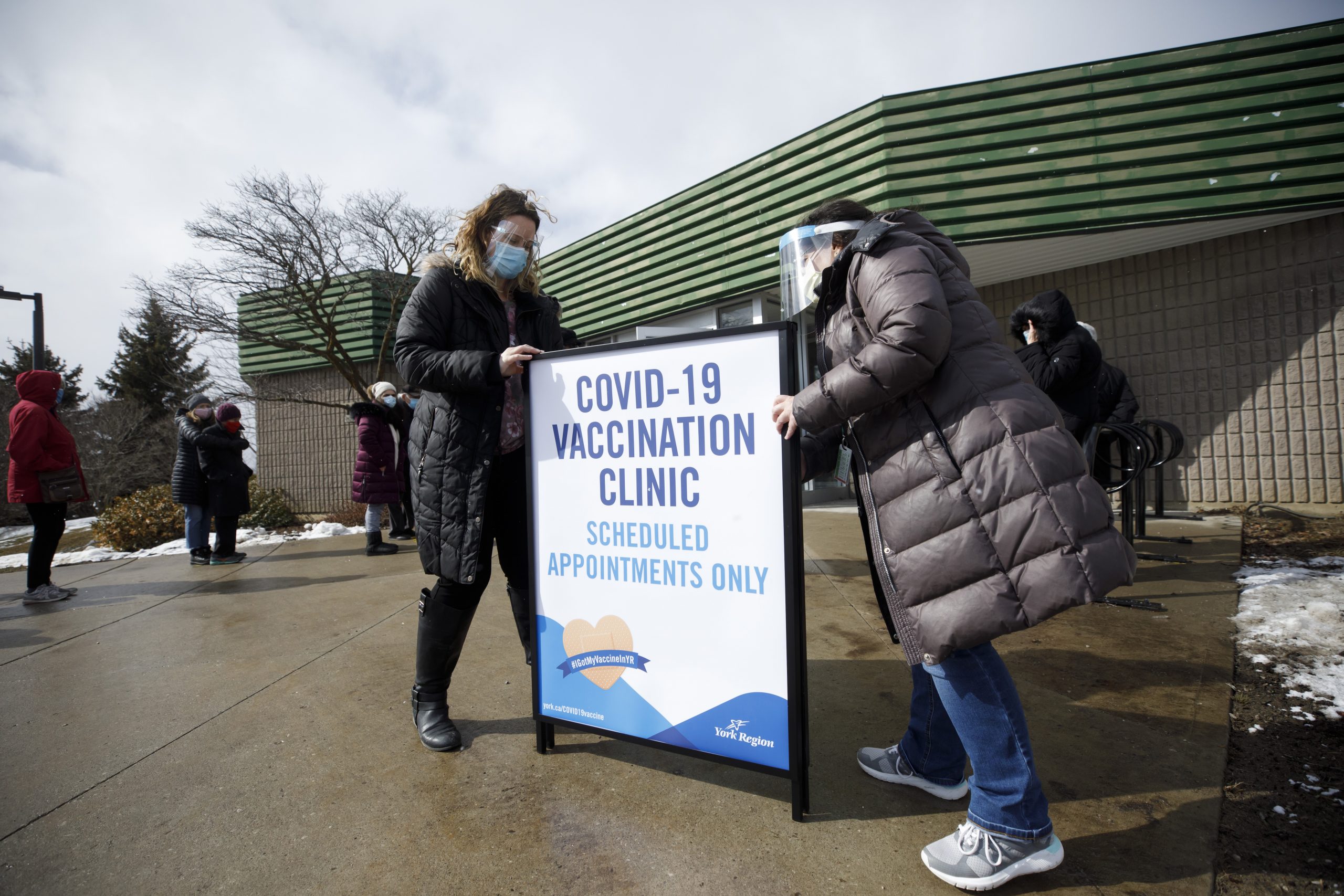
York Region and Halton Region have announced residents 65 and older can begin to book COVID-19 vaccine appointments as of Wednesday.
York and Halton have been using their own booking portals, rather than the province’s. Approximately 15,000 appointments will be made available Wednesday morning in York.
Appointments are required and they will not be accepting any walk-ins.
The province began allowing those 70 and older in several GTA municipalities to book their shot on Monday.
Prime Minister Justin Trudeau announced Tuesday that Pfizer and BioNTech will send another five million doses of their mRNA vaccine to Canada in June, bringing their total shipments in the spring to 17.8 million.
The company is expected to ship more than one million doses a week in April and May, and more than two million every week in June.

Tributes and memories are pouring in for beloved drag icon Michelle Ross.
The Jamaican-born Canadian drag performer passed away Sunday according to social media posts. Her cause of death remains unknown.
The Toronto-based performer’s career spanned four decades, allowing her to grace the international stage as Diana Ross and other iconic divas.

Ross was a well-known advocate for the BIPOC and LGBTQS2 community, regularly participating in fundraisers to support services in Toronto.
“We bid adieu to a legend, a queen, an icon: Michelle Ross.” tweeted Church Street community centre, The 519. “Michelle, reigned the local drag scene. Known to exude kindness and warmth, she wowed folks at our Green Space Festival helping raise funds for our communities. Rest in power, Ms. Ross!”
The award-winning performer inspired many in Toronto’s drag community, including Drag Race Canada host and judge, Brooklyn Hytes, who wrote: “Wishing more than anything I could be sitting in Toronto at Woodys with all my sisters laughing and crying tonight. We will miss you Michelle”
“Michelle Ross always spread kindness, positivity and love” shared Sofonda, “A true legend and Icon of our community. This sad news came as a shock. Hoping for her close Friends and Family to have the strength and love in these trying times . Losing a loved one is very difficult. RIP Michelle. We Love you.”
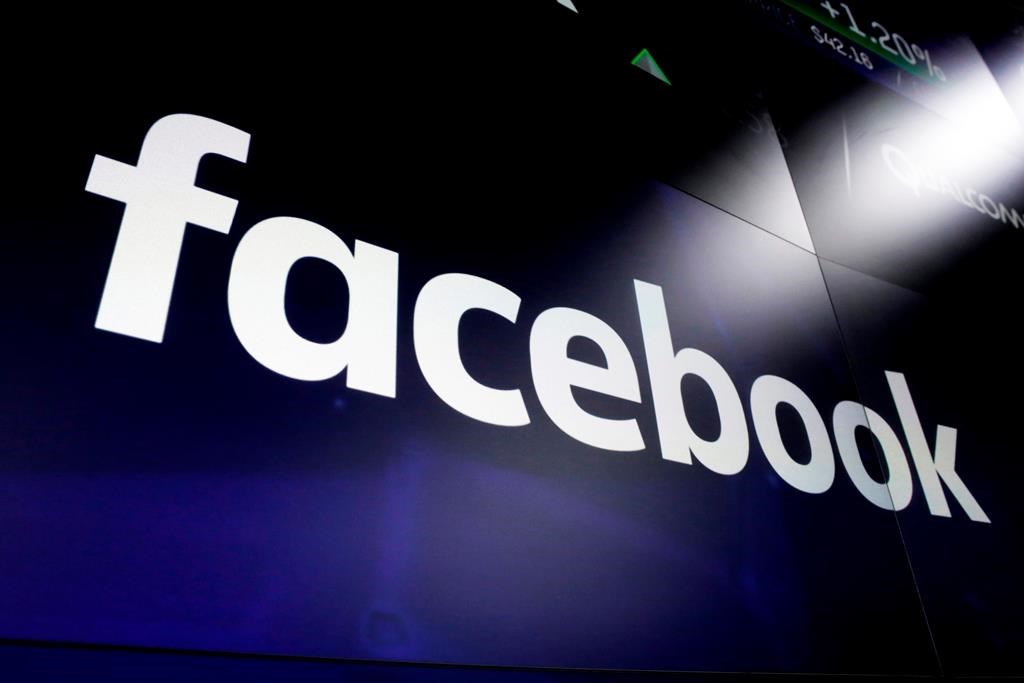
The head of Facebook Canada says it will try to avoid a repeat of the news blackout it imposed in Australia, so long as impending legislation doesn’t force it to dim the lights of democracy.
“It is never something we would ever want to do unless we really have no choice,” Kevin Chan told a parliamentary committee hearing Monday.
Facebook blocked all news on its platform in Australia for five days last month in response to proposed legislation that would require digital giants to pay legacy media outlets for linking to their work.
Prime Minister Justin Trudeau and his Australian counterpart agreed to continue “co-ordinating efforts” to ensure Big Tech revenues are shared more fairly with creators and media after Facebook struck a deal with the Australian government on a revised bill, which still demands tech titans fork over cash for linked content.
The standoff Down Under shone a spotlight on Facebook’s massive clout — despite the public relations disaster that ensued — as well as broader questions around shifting media business models and modes of information consumption.
Ottawa is working on a three-pronged response to the challenges that social media platforms and other online content providers pose to how media in Canada has been financed, regulated and policed in the past.
Part of that solution is a bill currently before the House of Commons to modernize the broadcasting regime in a way that could force internet steaming sites like Netflix and Spotify to make Canadian content more discoverable and to cough up financial contributions to bolster Canadian creators and producers.
Online hate is a focus of the second prong, as global observers continue to question Facebook’s role in tragedies ranging from the Christchurch mosque shootings in New Zealand to deadly military violence directed at Myanmar’s Rohingya minority, along with racist posts in Canada.
The third prong seeks to address how major internet companies are taxed — with Australia providing a possible model — and in turn how traditional media companies are financially supported.
Facebook already props up struggling legacy news firms by directing traffic to their sites, Chan said, arguing that cumbersome regulation would hinder a free and open internet.
He pointed to Ontario-based Village Media, whose CEO estimates that Facebook and Google generated 24 million page views for the online community news company in January, amounting to $480,000 in ad revenue. Facebook Canada has also announced investments of $18 million in sustainable media models over six years.
Even if Facebook did choose to choke off news access, the platform doesn’t currently function as an essential source of information for most Canadians, Chan said. He cited a Ryerson Leadership Lab study showing that about one-quarter of the population gets its news from Facebook, below several other sources including television, which topped the list, but above newspapers and magazines.
“It’s not the case that Facebook is somehow synonymous to the internet or somehow synonymous with access to news,” he said.
Critics argue that paying publishers for links that they or their readers choose to post on social media — effectively a form of promotion — is backwards; if anything, news outlets should pay Facebook for the privilege of putting up de facto ads on its platform.
In a statement to The Canadian Press, Heritage Minister Steven Guilbeault said the government is consulting with France and Australia over the “market imbalance between news media organizations and those who benefit from their work.”
“News is not free and has never been. Our position is clear: publishers must be adequately compensated for their work and we will support them as they deliver essential information for the benefit of our democracy and the health and well-being of our communities,” he said.
In Australia, Facebook secured concessions in an agreement with the government that allows more room for private deals between Facebook and media firms — such as Rupert Murdoch’s News Corp — and an extra round of negotiation with publishers before binding arbitration kicks in.
But settling that dust-up did little to pacify concerns over the might and motivations of Big Tech.
“People are increasingly concerned about the power of the web giants and the ravages of the spread of online hate speech, the impact of unfair competition of these giants on local media, and the total lack of justice when people work hard to pay their fair share and multinational web companies do everything to circumvent the rules,” said New Democrat MP Heather McPherson.
She accused the Liberal government of fostering a “cosy relationship” with digital giants that protects platforms’ profits at the expense of local media and Canadian taxpayers.
The government hopes to table legislation on fair remuneration this year, Guilbeault said.
It also aims to put forward within weeks a bill on online hate speech that would establish a regulator responsible for enforcing an updated definition of hate and ensuring illegal content comes down within 24 hours, subject to strict penalties — which Chan says Facebook would support.
“If we aren’t seen to be in good faith building the right systems to enforce against our standards, then absolutely we should be subject to some kind of penalty and held to account,” he said.
Lawmakers also raised concerns Monday about disinformation around COVID-19 vaccines as Canadians rely increasingly on digital communications to stay informed amid a pandemic, an issue that Chan says the company is trying to address while respecting freedom of expression.
“The challenge is, we do need to strike a balance between people’s ability to speak their minds and share their own feelings and ideas … and also prevent harmful misinformation about the vaccine from being spread,” Chan said.
Facebook has 35,000 moderators screening content around the world, including for misinformation and hate speech, he said.
Current Criminal Code provisions barring hate speech can seem increasingly feeble against the daily tide of content that washes up online.
“Bigoted speech is always out there,” said University of Windsor law professor Richard Moon in an interview. “But the rise of social media as the principal platforms for personal and public engagement has helped hateful views of different kinds move more into the mainstream.”
Moon pointed to algorithms on sites such as YouTube, owned by Google, that can wind up fanning inflammatory posts.
“In order to try to maintain the attention of the viewer, they make suggestions of videos that are more and more extreme because people are often more and more engaged and it holds their attention,” he said.
Mohammed Hashim, executive director of the Canadian Race Relations Foundation, says one reason hate has been so tough to rein in online is a lack of government “guidance.”
“The harm that it’s creating not only to victims who face it but to our sense of common decency as Canadians is eroding our faith in democracy,” he said in an interview.
“And all of it is happening because of how social media platforms have allowed fringe voices to take over.”
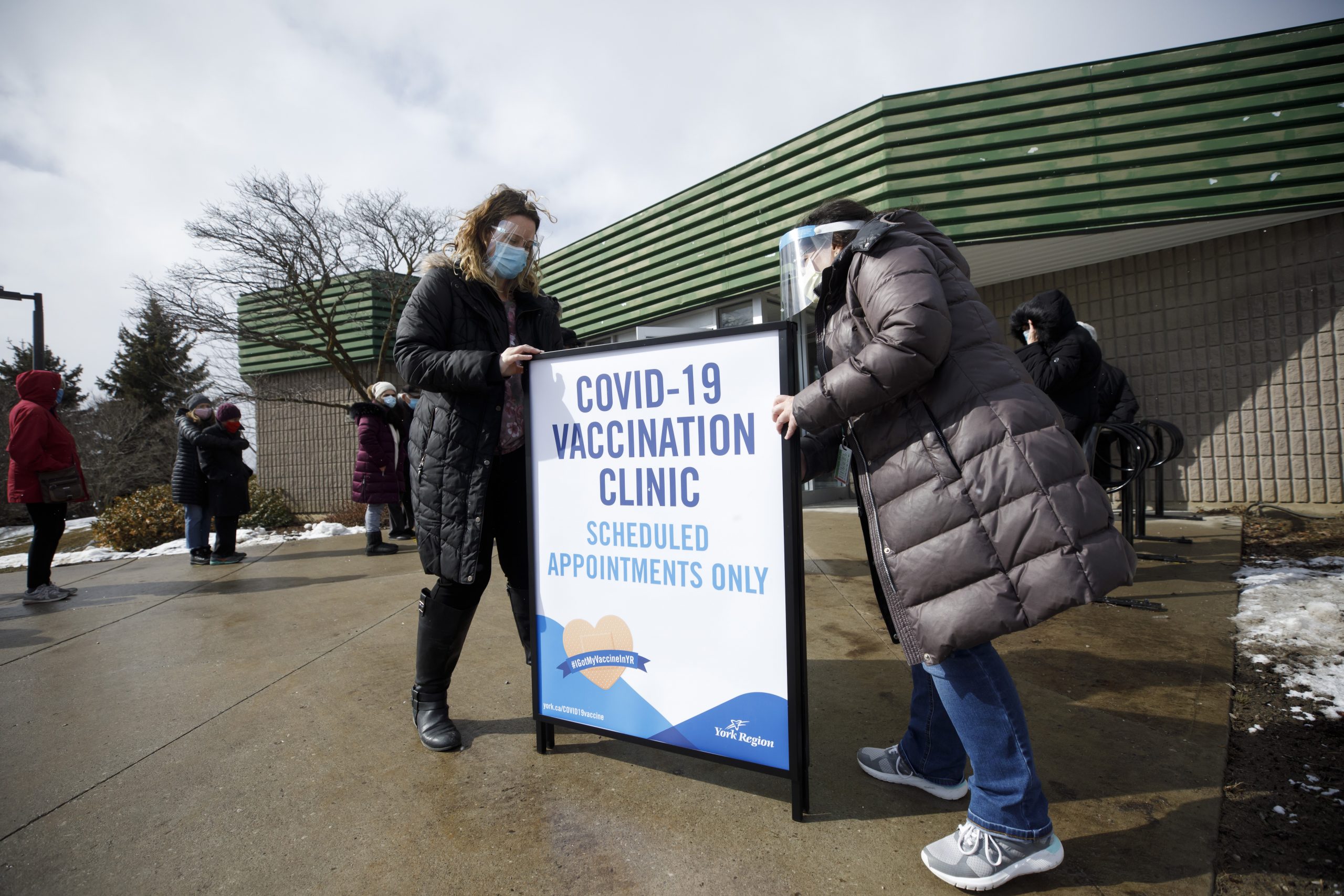
York Region is temporarily closing three COVID-19 vaccination sites, including the location recently opened at Canada’s Wonderland, due to a shortage of supply.
“Due to delays in anticipated shipments of the Moderna vaccine, York Region will regrettably need to close three vaccination clinics from April 2 to 5 inclusive,” says Patrick Casey, director, Corporate Communications.
Georgina Ice Palace in Georgina, the Aaniin Community Centre in Markham and the drive-thru clinic at Canada’s Wonderland, are the clinics temporarily closing.
Casey says additional vaccine deliveries are expected next week and the clinics will open then.
“All other clinics will continue to operate at capacity 7 days a week,” Casey says.
Vaccine clinics in York still operating include Richmond Green Sports Centre in Richmond Hill, Maple Community Centre and Vaughan Cortellucci Hospital in Vaughan, the Cornell Community Centre in Markham, and Ray Twinney Recreation Complex located in Newmarket.
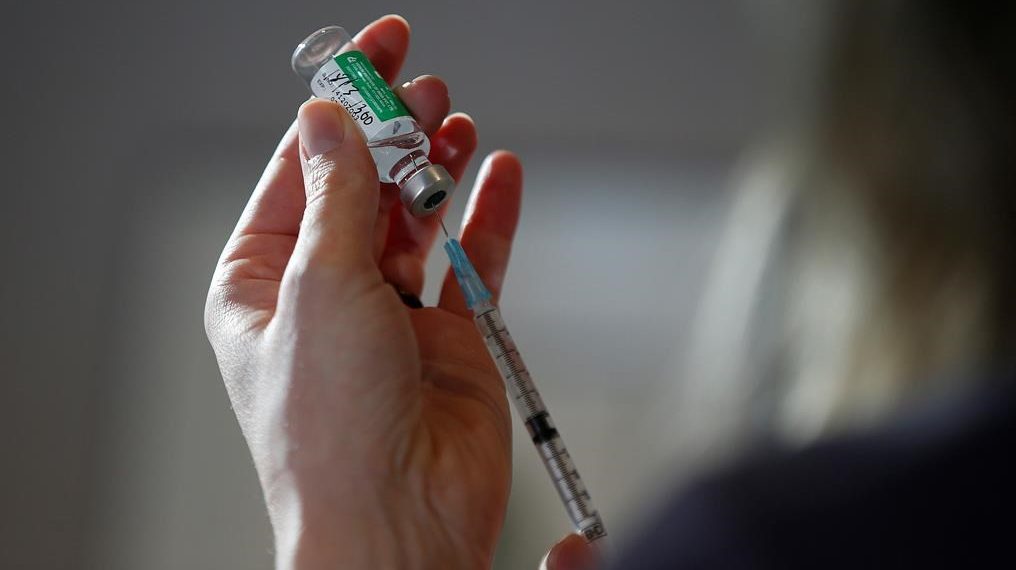
Canada’s National Advisory Committee on Immunization (NACI) recommends suspending the use of the Oxford-AstraZeneca COVID-19 vaccine for anyone under the age of 55 as a precautionary measure, pending further investigation.
The recommendation comes after more reports that patients in Europe developed blood clots following vaccination.
Cases were identified primarily in women under the age of 55, but cases in men have also been reported and were typically seen between four and 16 days after receiving the vaccine.
Health Canada says it has not received any reports of blood clots in Canada to date.
However, the agency says it now requires that the manufacturers of the AstraZeneca and Verity pharmaceuticals Serum Institute of India vaccine conduct a detailed assessment of the benefits and risks of the vaccine by age and sex in the Canadian context.
“This info will support the ongoing evaluation of these blood clotting events and allow Health Canada to determine if there are specific groups of people who maybe at higher risk,” said the agency’s chief medical adviser Dr. Supriya Sharma.
She added that the regulators are not pulling AstraZeneca’s approval in Canada, but additional terms and conditions may be forthcoming based on the results of the study.
The incidence of blood clots following vaccination is called vaccine induced prothrombotic immune thrombocytopenia (VIPIT).
“The exact mechanism by which the AstraZeneca vaccine triggers VIPIT is still under investigation and no other risk factors have been consistently identified in patients who developed VIPIT,” says Dr. Shelley Deeks from NACI. “This adverse event has not been identified following either MRNA COVID vaccine to date.”
Dr. Deeks said the rate of the adverse events is unknown at this time but based on information from Europe, it was originally estimated to occur at approximately one per million people vaccinated with AstraZeneca. However a higher rate of one per 100,000 has been reported by the Paul Ehrlich Institute in Germany.
“Following a population-based analysis, considering what we know of VIPIT, assessing the risk of COVID-19 disease in Canada by age and considering that alternate vaccines are available in Canada, NACI has determined that there is substantial uncertainty about the benefit of providing AstraZeneca COVID-19 vaccine to adults under 55 years of age given the potential risks associated with VIPIT,” said Dr. Deeks.
Adults 55 and older can still be offered the vaccine with informed consent due to the increased risk of severe cases of COVID-19 in this age group and as VIPIT appears to be rarer.
She added that case fatality for VIPIT is approximately 40 per cent but may decrease with increased awareness of VIPIT and early treatment.
Earlier Monday, Health Minister Patty Hajdu told a videoconference that Canada is closely monitoring investigations into possible adverse effects linked to the vaccine that are taking place in several jurisdictions.
Prince Edward Island suspended its use of the shot for those aged 18 to 29 earlier in the day. The province’s health officials said in a brief statement the vaccination appointments are on hold pending the updated information from Health Canada and the vaccine committee.
Quebec also announced plans to stop using the AstraZeneca vaccine shortly after.
Ontario Premier Doug Ford said his government will follow the lead of the federal government.
“If it’s going to put anyone at harm, we just won’t use it,” he said.
Ford added that he “would rather wait,” if it means a few months, for Pfizer, Moderna and Johnson & Johnson than “roll the dice” with AstraZeneca.
No one below 60 years of age has received the AstraZeneca vaccine in Ontario.
Ontario’s Chief Medical Officer said he and many others had been working on the situation all weekend and called it “very rare and unique.”
“We have said that we are pausing on the use at this time for those under 55 because while there is a very rare incident, we want to make sure we’re fully appraised on this,” he said. “Because if we’re going to give people advice, we’d like to give them the best advise we can give them on this matter so they are as informed as we are.”
In Toronto’s daily COVID-19 briefing, the Medical Officer of Health said she was very interested in the specifics of the recommendation from Health Canada and NACI and added that the revising of guidelines is a good thing.
“It’s important that we have this activity happening, that there is a National Advisory Committee on Immunization, constantly assessing and reassessing vaccines,” she said. “We expect that our federal partners who are responsible for the regulation of vaccine use in Canada continue to play that very important role and I am certainly assured, as should the people of Toronto and beyond, that there is active and constant assessment of the safety and effectiveness of vaccines.”
The news is the latest setback for a vaccine that has been plagued by questions over its preliminary trial data in the United States, confusion over whether it is safe for seniors and reports that it is linked to blood clots in a small number of people.
It comes as Canada is expected to receive 1.5 million doses of the vaccine from the United States on Tuesday.
Canadian health officials first recommended the AstraZeneca vaccine for those under 65, but on March 16 they adjusted their advice to say that it could also be given to seniors.
Several European countries suspended the use of the vaccine as a precautionary measure earlier this month amid concern that its use could be linked to blood clots in a few patients, although many countries have resumed its use after the European Medicines Agency said it was safe.
Health Canada updated its product label for AstraZeneca to warn about blood clotting last week but said reports of those events were nonexistent in Canada and very rare elsewhere.
The label warning followed reports from Europe that the vaccine might cause a rare type of blood clot in the brain in a very small number of patients.
“Health Canada’s guidance issued to health-care practitioners last week still stands, and provides vaccine recipients with information on the signs and symptoms to monitor for following vaccination,” said Dr. Sharma.

Peel Regional Police say they have recovered a black Honda Civic used in a violent kidnapping Sunday morning in Brampton, but the suspect and victim remain at large.
WATCH: https://toronto.citynews.ca/2021/03/28/police-search-for-suspect-in-violent-brampton-kidnapping/
The vehicle was found empty about five kilometres east of where the incident took place.
Police say the incident began just before 3 a.m. Sunday morning when they received numerous calls about a man “screaming and banging on doors” outside a Brampton residence.
When they arrived at the home on Adventura Road in the area of Mayfield Road and Mississauga Road, they could hear a woman screaming from inside the residence.

According to the Special Investigations Unit, police entered the home and made their way to the garage area where they discovered a man in the driver’s seat of a car with a woman in the back seat.
“There was an interaction, and two officers discharged their firearms in the direction of the vehicle,” according to a statement released by the SIU.
“While still in the vehicle, the man managed to flee from the garage with the woman still inside,” they said. “At this time, it is not known whether the man was struck by gunfire,” added the SIU.
The SIU says the act of police discharging a firearm at a person caused them to invoke their mandate in this case.
Police identified the suspect as 21-year-old Kwami Garwood and the victim as 23-year-old Salina Ouk. The two are believed to be in a relationship and investigators say Garwood is considered armed and dangerous.
Later in the afternoon, police said Garwood is known to the police and wanted on four outstanding warrants throughout the GTA, including a first-degree murder warrant issued by Toronto Police in July, 2020. The victim is not known to police.
Police said given Garwood’s criminal history, they are very concerned about Ouk’s safety and appealed to the public for any information.

Britain is taking another small step out of lockdown as it looks nervously at a new virus surge inundating its European neighbours.
With U.K. coronavirus vaccination rates outstripping those of European Union nations, Prime Minister Boris Johnson is easing the stark “stay at home” message that has curtailed everyday life – and kept the virus in check – for almost three months.
From Monday, it will be replaced in England with a message to stay local. People will be allowed to meet in groups of six outdoors and can resume outdoor sports such as basketball, tennis and golf.
The other parts of the U.K. – Scotland, Wales and Northern Ireland – are taking broadly similar steps. In Wales, thousands of people poured onto beaches and mountain spots on Saturday, after the authorities lifted travel restrictions that have been in place since December.
Most nonessential businesses remain closed, along with pubs, restaurants, gyms, cinemas, theatres, museums and sports stadiums. Millions of workers have been furloughed, with the government paying the bulk of their wages.
The U.K. has recorded more than 126,000 COVID-19 deaths, the highest toll in Europe.
Stephen Powis, medical director of the National Health Service in England, urged people to continue to follow the rules and limit contact with others, saying the easing “does not mean job done.”
“We’ve made enormous progress that we need to build on and not squander the gains we’ve made,” he wrote in the Sunday Telegraph newspaper.
The stringent restrictions in business and social life imposed during three lockdowns in the past year have had broad public support, though they have alarmed some lawmakers in Johnson’s Conservative Party, who argue that the economic, democratic and human costs outweigh the benefits.
While many European nations are seeing a new surge in the pandemic, Britain is counting on a rapid mass-vaccination program to help it end its lockdown. More than 30 million people _ 57% of all U.K. adults _ have received a first dose of vaccine so far, the government announced Sunday. Almost 7% of adults have had both doses.
Britain aims to give everyone over 18 a first jab by July, with second shots delivered within 12 weeks of the first.
Health officials say the program will slow down in April because of a squeeze on supplies, in part because of a delayed order from India. The EU has also threatened to block shipments of vaccines from factories in the bloc unless drugmakers – notably Anglo-Swedish firm AstraZeneca – send more shots to EU nations.
Some European politicians, under fire for their slow vaccine programs, say Britain has failed to export any vaccine doses to the continent, while millions have gone the other way. Britain disputes that characterization, saying vaccines have complex supply chains and some ingredients in Europe’s shots are made in the U.K.
British Culture Secretary Oliver Dowden said the government was confident it would hit its vaccination targets. He said the first doses of a vaccine made by U.S. firm Moderna would arrive in Britain in April, joining the AstraZeneca and Pfizer-BioNTech shots.
“We’re confident we’ll be able to deliver it and we are confident that it won’t require mixing the vaccines,” Dowden told the BBC.
Under the government’s “road map” to lifting lockdown, shops, hairdressers and outdoor dining in England are to reopen on April 12, followed by indoor venues on May 17. Remaining restrictions are to end June 21, if the country isn’t facing a new virus surge.
Anthony Harnden, deputy chair of Britain’s Joint Committee on Vaccination and Immunization, said it was vital that people who had received a vaccine shot remained cautious.
“It’s really important that people who are vaccinated can remember that they aren’t completely protected,” he told the BBC.
“They’re protected against severe disease, hospitalization and death, but they might not be protected against infection after one dose, it takes three or four weeks for the vaccine effects to kick in, and they could potentially still transmit.”

The impact of the interruption of traffic on the Suez Canal in Egypt is being felt as far away as Quebec, where it will inevitably cause delays in commercial activities, according to Montreal’s Port.
An immense container ship has been wedged in the crucial shipping channel for days, leaving over 320 ships stuck behind it on both sides awaiting passage, according to canal services provider Leth agencies.
A spokeswoman for the Port of Montreal says it “certainly” expects the situation to create delays for the ships which pass through the canal before heading to Montreal via Europe.
Merchandise from Asia will be most impacted, since most goods from that continent are transported through the Suez and Panama canals, according to communications director Melanie Nadeau.
Nadeau said in an email that shipping from Asia accounts for about 25 per cent of the port’s commerce.
Products imported from Asia include clothing, electronics and construction material. On the export side, products such as grain, pulp and paper and forestry products could be affected.
“It’s not currently possible to quantify the anticipated impact of the blockage of the Suez Canal for the Port of Montreal,” Nadeau wrote in an email.
“We’re closely monitoring the situation.”
At Quebec City’s port, the situation appears less serious. The blockage is not expected to create direct impacts, at least in the short term, a spokesman said.
“On the other hand, if it extends two, three, months, it’s certain there could be impacts to a certain degree,” Frederic Lagace said.
Lagace said the difference is that Montreal deals more with containers, while Quebec City handles solid and liquid bulk, which is less impacted.









